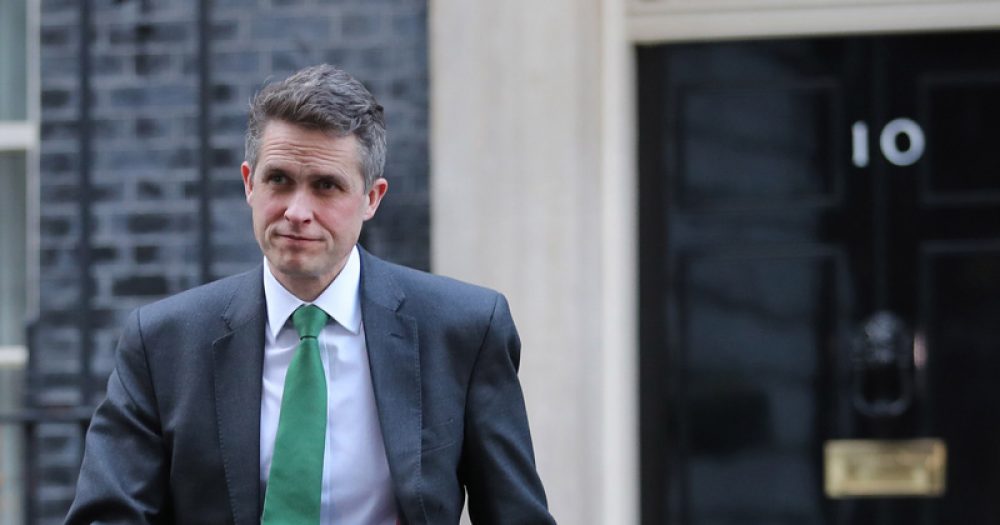The government will provide free laptops and tablets for disadvantaged year 10s and other vulnerable pupils to help them learn at home during the coronavirus lockdown.
From Wednesday, schools will be able to submit business cases via a Department for Education online portal for devices for individual eligible pupils.
The aim is to prevent those who don’t have access to devices at home from falling behind during the partial closures of schools.
The government has also confirmed the Oak National Academy will launch tomorrow, backed by £300,000 grant funding. As revealed by Schools Week on Thursday, the new online curriculum hub, which will include filmed lessons, has been created by teachers across the country.
Meanwhile the government has pledged to provide 4G routers to families with disadvantaged secondary pupils that have no mobile or broadband access.
Major telecommunications providers have also promised to temporarily exempt websites with “selected educational resources” from data charges. But no further details of the schemes have been provided.
The announcements come as the Sunday Times today reports that ministers were drawing up plans that could see schools reopen in as early as three weeks time, on May 11.
Under the plan, pupils of different ages would be taught at different times or on alternating weeks, and a priority return for primary pupils and those in years 10 and 12.
It’s one of three options reportedly on the table, the other two being schools opening on June 1 or at the start of September.
However, the DfE said in response that “no decision has been made” on reopening schools, and that they would only do so once scientific advice “indicates it’s the right time to do so”.
Gavin Williamson, the education secretary, said today that the free devices would help “enable all children to continue learning now and in the years to come”.
But union leaders have called for the scheme to be expanded to cover more pupils.
Eligible children will only include those with a social worker, care leavers and disadvantaged year 10s, who are due to sit their GCSEs next year.
Devices will be kept by schools once they reopen, in order to support learning in the future.
The DfE would not tell Schools Week how much money had been allocated for the scheme, but said it expects to spend millions of pounds on the scheme.
The department has also not said how many pupils are expected to be eligible.
Williamson reiterated that schools and colleges will remain closed “until the scientific advice changes”, which is “why we need to support the incredible work teachers are already doing to ensure children continue to receive the education they deserve and need”.
“By providing young people with these laptops and tablets and enabling schools to access high quality support, we will enable all children to continue learning now and in the years to come,” he added.
The portal is expected to go live in the coming days. However, the DfE would not say how long it will take for the laptops and devices to be delivered.
Geoff Barton, general secretary of the Association of School and College Leaders, said the government is right to identify pupils in the midst of GCSE studies as a “key group”.
But he added: “However, we hope that it will prove possible to widen this scheme to other disadvantaged youngsters who do not have these devices.”
Paul Whiteman, general secretary of NAHT, which represents school leaders, echoed the expansion calls, adding: “If successful, the scheme could make a real difference to many disadvantaged young people in the coming months.”
Meanwhile, the Oak National Academy has been created by 40 teachers from schools across England. It will provide 180 sequenced video lessons each week, across a range of subjects, for every year group from reception through to year 10, and led by principal Matt Hood.
It will provide a plan of video lessons and resources for three hours of learning per day for primary pupils and four hours for those at secondary school.
The DfE will also today publish new guidance for parents on how to help their children learn from home.
Although the guidance states that parents do not have to maintain the “full routine” their children would normally follow at school, it does encourage parents of primary age children to help them practice things like reading, writing and counting.








Great work re. online resources. Any ideas how the £300,000 grant funding will be spent? There must have been an evaluation of costs:
Zoom £150pa
Website £0
Server £350pm
etc.
im in college and out of a job
Whats happened to this scheme?
Not one child I know who is classed as disadvantaged has got one through their school even though the school applied when asked to.
Shocking…
I need a laptop SIR OR MADAM…..